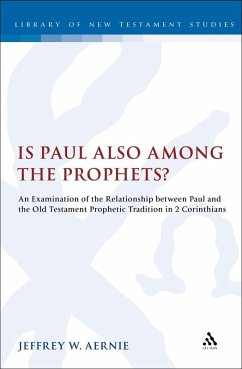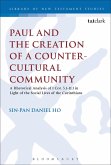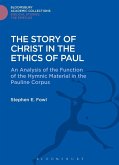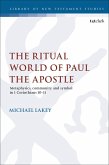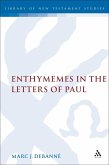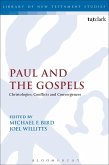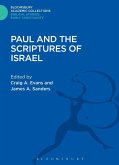Aernie examines the prophetic material in the Old Testament and its relationship with the prophetic material in Second Temple Judaism, Hellenism, and the early Christian movement. The subsequent
analysis of 1 Corinthians constitutes an investigation of the effect of the Old Testament prophetic tradition on Paul's self-presentation in 1 Cor 9.15-18 and rhetorical framework in 1 Cor 14.20-25 as a methodological foundation for the exegetical analysis of 2 Corinthians.
Aernie explores the influence of the Old Testament prophetic tradition on Paul's apostolic self-presentation and rhetoric in 2 Corinthians. The analysis of Paul's self-presentation examines the apostle's relationship with Moses, the Isaianic servant, and Jeremiah in order to define Paul's position with regard to the preceding prophetic tradition. Aernie analyses Paul's argument in 2 Cor
2.14-16; 4.1-6; 6.14-7.1; 12.1-10 then seeks to examine the influence of the Old Testament prophetic tradition on the formation of Paul's rhetorical framework. Aernie's intention is to provide support for the notion that the particularly prophetic nature of Paul's apostolic persona affects both his self-presentation and rhetorical agenda in 2 Corinthians.
analysis of 1 Corinthians constitutes an investigation of the effect of the Old Testament prophetic tradition on Paul's self-presentation in 1 Cor 9.15-18 and rhetorical framework in 1 Cor 14.20-25 as a methodological foundation for the exegetical analysis of 2 Corinthians.
Aernie explores the influence of the Old Testament prophetic tradition on Paul's apostolic self-presentation and rhetoric in 2 Corinthians. The analysis of Paul's self-presentation examines the apostle's relationship with Moses, the Isaianic servant, and Jeremiah in order to define Paul's position with regard to the preceding prophetic tradition. Aernie analyses Paul's argument in 2 Cor
2.14-16; 4.1-6; 6.14-7.1; 12.1-10 then seeks to examine the influence of the Old Testament prophetic tradition on the formation of Paul's rhetorical framework. Aernie's intention is to provide support for the notion that the particularly prophetic nature of Paul's apostolic persona affects both his self-presentation and rhetorical agenda in 2 Corinthians.

